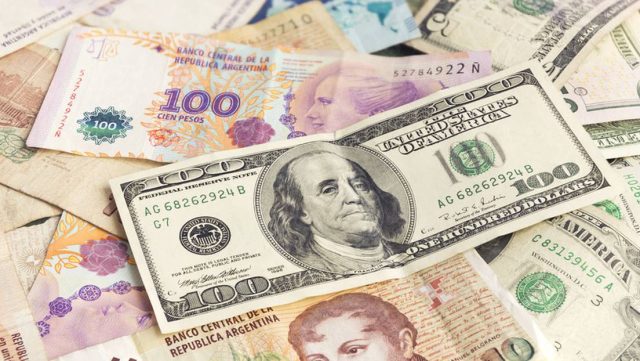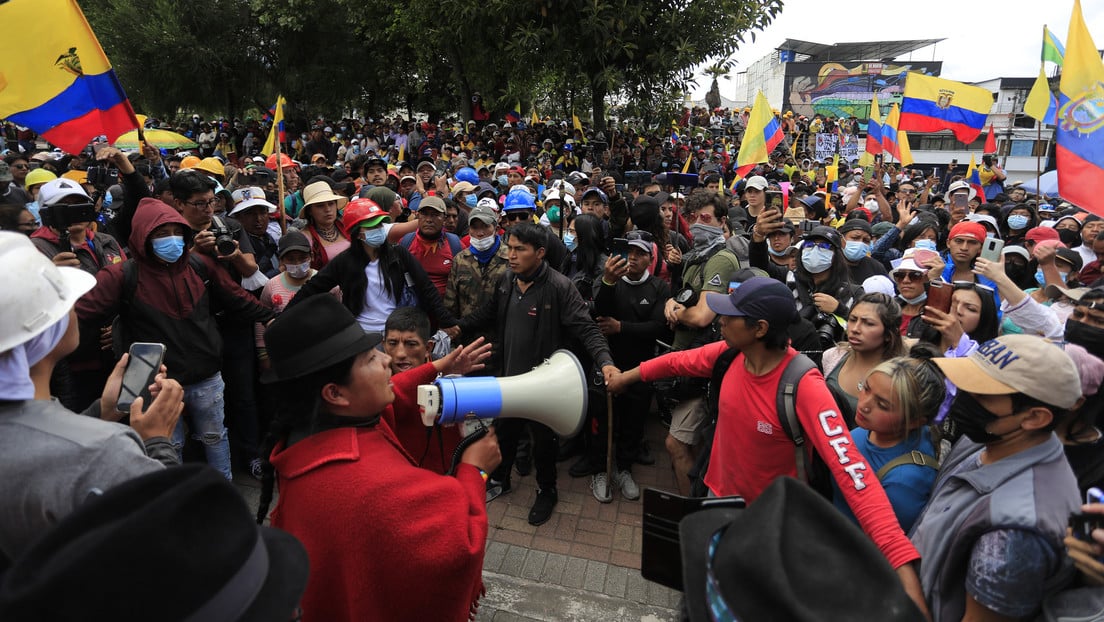The resignation of the Minister of Economy, Martín Guzmán, deepened the political crisis that Argentina is facing in the midst of the fight between President Alberto Fernández and Vice President Cristina Fernández de Kirchner, which has weakened the ruling coalition so near to the general elections of 2023.
The only surprise element of Guzmán’s resignation was the day, time and medium he chose to make it known that, after months of criticism and pressure from the vice president, he was leaving the most important ministry in a country in permanent uncertainty, informed RT .
He did it on Saturday night and on Twitter, at the same time that Fernández de Kirchner led a tribute to former president Juan Domingo Perón with harsh questions about the president and the economic policy carried out by Guzmán, which she had already been doing in all her appearances. through speeches that placed her more in the opposition than as a central figure of the Frente de Todos, the ruling Peronist coalition.
«The situation in Argentina is very serious», «I am going to meet with whomever I have to meet as many times as possible to explain our foundations and try to persuade the other as well. I never deny or renounce to convince», «In our own political movement, they want to make me say things that I did not say», were some of her definitions after several controversies, among them, her meetings with rival economists of Guzmán.
She also responded directly to the president, who had warned that power «is not about seeing who has the pen,» that is, about having the last word, but about the ability to convince.
«Perón got the pen and did not release it anymore, he used it for the people», said the vice president in a frank confrontation with Fernández. Without calling him by name, she added that she hoped «those with higher responsibilities» would act in the same way she did in 2019 so that Peronism wins again in 2023.
According to the polls, the desire of the vice president today is unlikely, since the levels of rejection of the Government exceeds 60%.
The scenario for Argentina
On Saturday, it had been more than 100 days since the president and vice president had not spoken to each other. In economic terms, the expectation of annual inflation is around 60%, the highest in decades, although the most pessimistic predictions raise it to 90% by the end of 2022.
In addition, export controls have once again strained the complex foreign exchange market in this country, where multiple dollar rates coexist. Until last Friday, the official price of the currency was 130 pesos, but in the illegal market (baptized with the euphemism of «dollar blue»), it had increased more than 20 pesos in a few days to reach 240 pesos. The gap between the two was already almost 100%.
The record levels of inflation and devaluation, with poverty around 50%, overshadow the growth of the Gross Domestic Product, which is around 5.0% and which demonstrates the post-pandemic economic recovery trend. Another positive but insufficient indicator is the drop in the unemployment rate from 13% to 7.0%.
As soon as Guzmán published the seven pages of his resignation on Twitter, he snatched the limelight from Fernández de Kirchner. Although it had been expected for months, the confirmation of the resignation altered the political agenda again.
In keeping with his style, the now former minister avoided a direct fight, but he did hint that one of the reasons for his decision was that he was not allowed to fully exercise the management of the economic policy.
“I believe that it will be essential that I work on a political agreement within the ruling coalition so that whoever replaces me, has centralized management of the macroeconomic policy instruments”, he stated in a letter full of thanks to the president, but without mentioning any sort of gratitude to the vice president.
Guzmán’s departure accentuates the political loneliness of Alberto Fernández, the leader whom the former Argentine president chose as the presidential candidate in 2018, but who has now become his main critic.
At the end of 2020, the vice president began to denounce «officials who do not work», among whom was the Minister of Economy, since she was dissatisfied with the renegotiation of the multimillion-dollar debt acquired by former president Mauricio Macri with the International Monetary Fund.
Since then, Fernández de Kirchner’s claims have intensified, either through speeches or letters. The result today is a ‘cracked’ coalition, immersed in a strong internal fight and with few expectations of winning the presidential elections next year.
The reunion
On Sunday afternoon, with Argentina in suspense without knowing who would replace Guzmán, the president of the Abuelas de Plaza de Mayo, Estela de Carlotto, became an unexpected mediator of the crisis, since she contacted the president and urged him to have a reunion with the vice president.
«They have to be together because that’s why the people voted for them», said the human rights leader. And they paid attention to her, since after months of estrangement, Fernández and Fernández de Kirchner spoke on the phone and agreed on the appointment of Batakis, former Minister of Economy of the province of Buenos Aires from 2011 to 2015. Until this weekend, she (Batakis) was secretary of Provinces of the Ministry of the Interior.
The economist assumes at a critical moment, with the dollar and inflation on the rise; the imminent revision of the IMF, and the challenge of the renegotiation of the debt with the Paris Club. As part, also, of a weakened government and with the doubt of how long the Fernández truce will last.
For now, the chief of staff, Juan Manzur, confirmed this morning that there will be no more cabinet changes and that Sergio Massa, whose name sounded insistently as his possible successor, will continue as president of the Chamber of Deputies.



